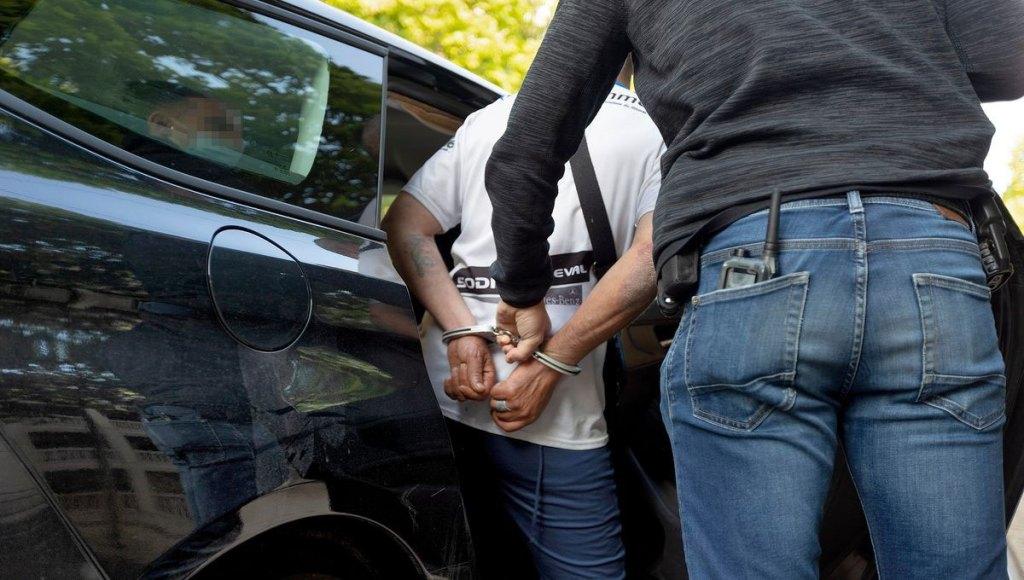Africa-Press – Mauritius. The Franklin affair continues to deliver its share of questions and questions. And the more we advance, the more we seem to be heading towards the opening of a Pandora’s box that no political party would like to see opened: that of the financing of electoral campaigns. We must stop deceiving ourselves about this problem of the financing of political parties. Elections are extremely expensive in Mauritius
Indeed, how is a politician or a political party today able to give the guarantee that each Rupee he receives comes from clear and perfectly legal sources? Given the multitude of sources of financing and the lack of control over the financing of elections, it would be ridiculous to think that this guarantee could be given in a serious way.
We must stop deceiving ourselves about this problem of the financing of political parties. Elections are extremely expensive in Mauritius. There are several reasons for this: leaflets, billboards, banners, transport logistics, the canteen to supply agents, etc.
, are extremely expensive.
If we add to this the teams for the management of social networks, the organization of meetings or the rental of rooms for gatherings, we quickly find ourselves with colossal budgets.
There is also another reason for the high cost of elections in Mauritius: the constant solicitations of voters, many of whom see elections as a way to fill their pockets a little. This produces a vicious circle that must be broken as soon as possible.
On the one hand, the voter has understood that his vote is like a commodity that can be sold once every 5 years, and on the other, some politicians do not hesitate to enter into negotiations to buy these votes.
. From there, it is easy to guess how the logic of one-upmanship can be put in place. Parties without legal existence
So how do you break this vicious circle? Through a series of measures that it is becoming urgent to put in place, starting with a legal framework for the regulation of political parties.
Indeed, how is it that political parties do not have a legal existence? In our current system, a political party literally does not exist – or rather it only exists during the time of the election campaign when it is registered with the electoral commission.
However, if a political party does not exist, how can it be controlled by financial regulatory institutions? How can the executive of a political party have access to the party’s bank accounts? Without legal existence, we should not be surprised that we find safes in some political leaders, and we should not be surprised that the people who hold the safes are – de facto – party owners.
Thus, the legal existence of political parties is part of the very democratization of the system, the lack of a legal framework being the main reason for the privatization of political parties – whether these political parties have Constitutions or not, moreover.
But back to election financing. We are, in fact, faced with an implacable accounting reality. Politicians need money for election campaigns. They even need a lot of money given the expectations of many voters, it is said.
So how can we expect them to refuse funding? Betting on morality is not enough — not in a country where “morality not filled belly” as the other said.
We need a system that can break the high cost of elections, and this system exists in a certain number of countries – and in particular the highly developed countries. We could, for example, draw inspiration from the French model where the state finances election expenses entirely.
This would allow clear spending limits and caps to be imposed, with severe penalties – such as outright disqualification of the party from the election – on parties that frustrate these rules.
But such a reform also calls for a reform of the electoral commission, which must become absolutely independent, starting with having the independence to decide the date of the elections.
It would also be necessary to set up the equivalent of an independent audit court, whose function would be to audit the financing of political parties – with the power of criminal prosecution if necessary. Without such drastic and severe measures, the link between politics and hidden funding will not be broken.
This link has become organic today with regard to electoral logic in Mauritius, and it is only through courageous and sharp decisions that we will be able to undo the marriage between politicians and mafia.
Mourning pilgrimage The highlight of this week was the drama that unfolded around Grand Bassin on Thursday afternoon. It is now absolutely essential that such a tragedy does not happen again by stopping the escalation of kanwars and imposing clear standards and limits.
Like any vehicle that uses the roads, height and width limits must be imposed. Several formulas can be found, with the possibility that authorities issue permits for large kanwars that use wheels to move around.
It will be up to the authorities to define and delimit the norms, hoping for the cooperation of all socio-cultural groups. To the bereaved families, our deepest condolences.
Pension reform in France and the ticking time bomb It has been several weeks now that strikes and calls for mobilization have followed one another in France. The reason for this: the pension reforms that Emmanuel Macron and his Prime Minister Elisabeth Borne want to pass.
This is a flagship project of Macron who has promised that he will go through with this reform, even if substantial amendments to the initial project have already been put in place.
The retirement age in France – like the old-age pension and paid holidays – is the result of great historical labor struggles. And these achievements are what give the various French unions a preponderant voice in the political space, even though they represent only 8% of employees.
This pension reform comes from a simple observation: the French population is aging while the birth rate is not increasing – peaking at around 11% to 12%.
It is therefore essential to work longer in order to counter the economic effects of the aging of the population on the cost of pensions and Social Security; especially since the progress of health and solidarity systems has meant that life expectancy has greatly increased in recent decades, reaching 85 years for women and 79 years for men today.
The problem of the aging of the population will weigh more and more heavily in the management of public policies and institutions. The effects are as much about pension and health financing issues as they are about labor and productivity issues.
And Mauritius will absolutely not be spared from these problems. Indeed, according to data from Statistics Mauritius, 237,200 Mauritians were over the age of 60 in 2021, which constituted 18.7% of the population.
And the trend is set, with implacable logic according to a study by the very serious United Nations Department of Economic and Social Affairs which shows that the Mauritian population will begin to decline from 2035.
We are thus sitting on a ticking time bomb. The demographic problem will shape major changes in our public policies and we must absolutely prepare for it.
Financing of pensions, financing of the health system, a youth who will have to produce more to be able to finance all this, a clearly defined migration policy, investments in the automation of work, the development of leisure industries for seniors, etc.The site is huge and must be prepared today.
For More News And Analysis About Mauritius Follow Africa-Press







